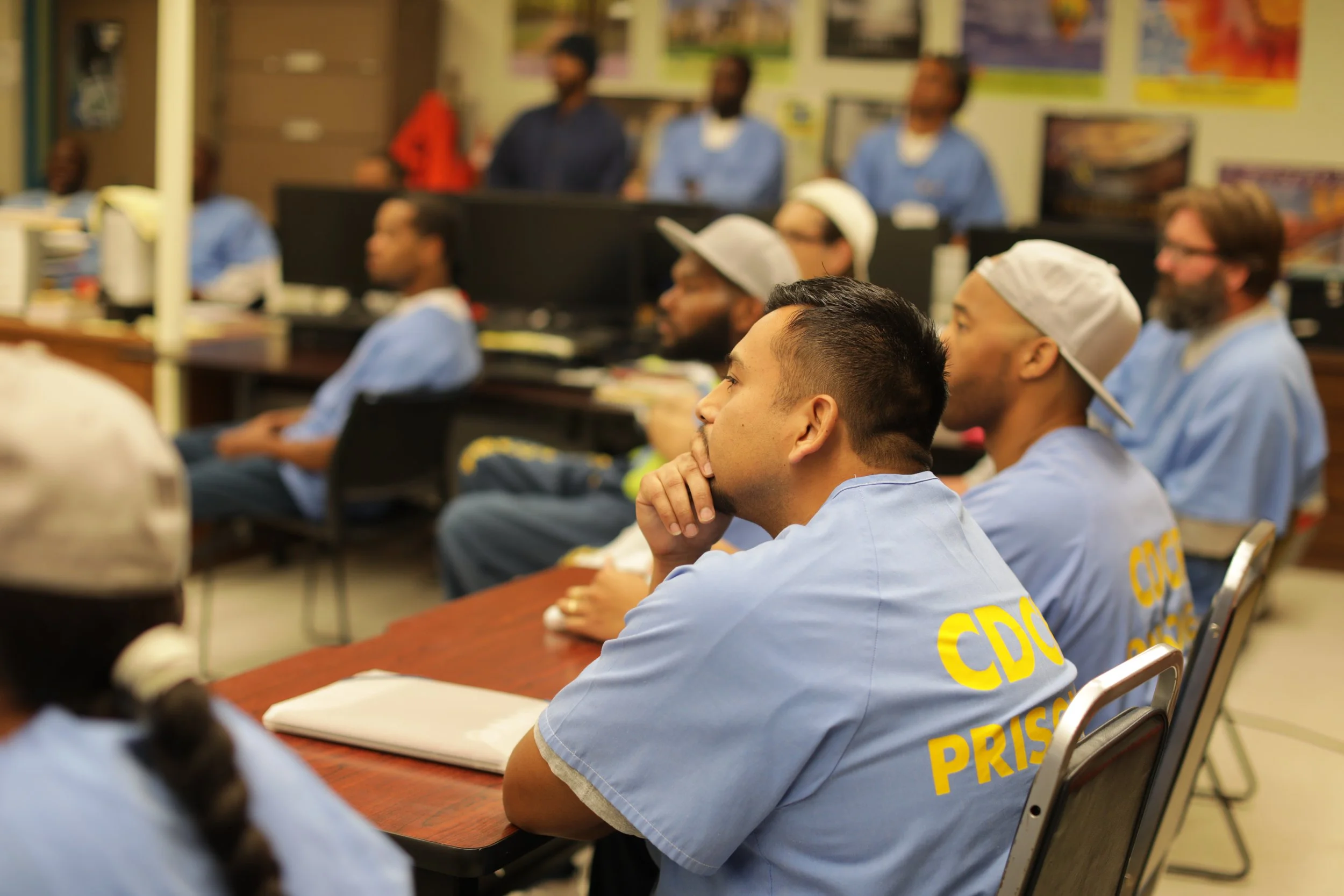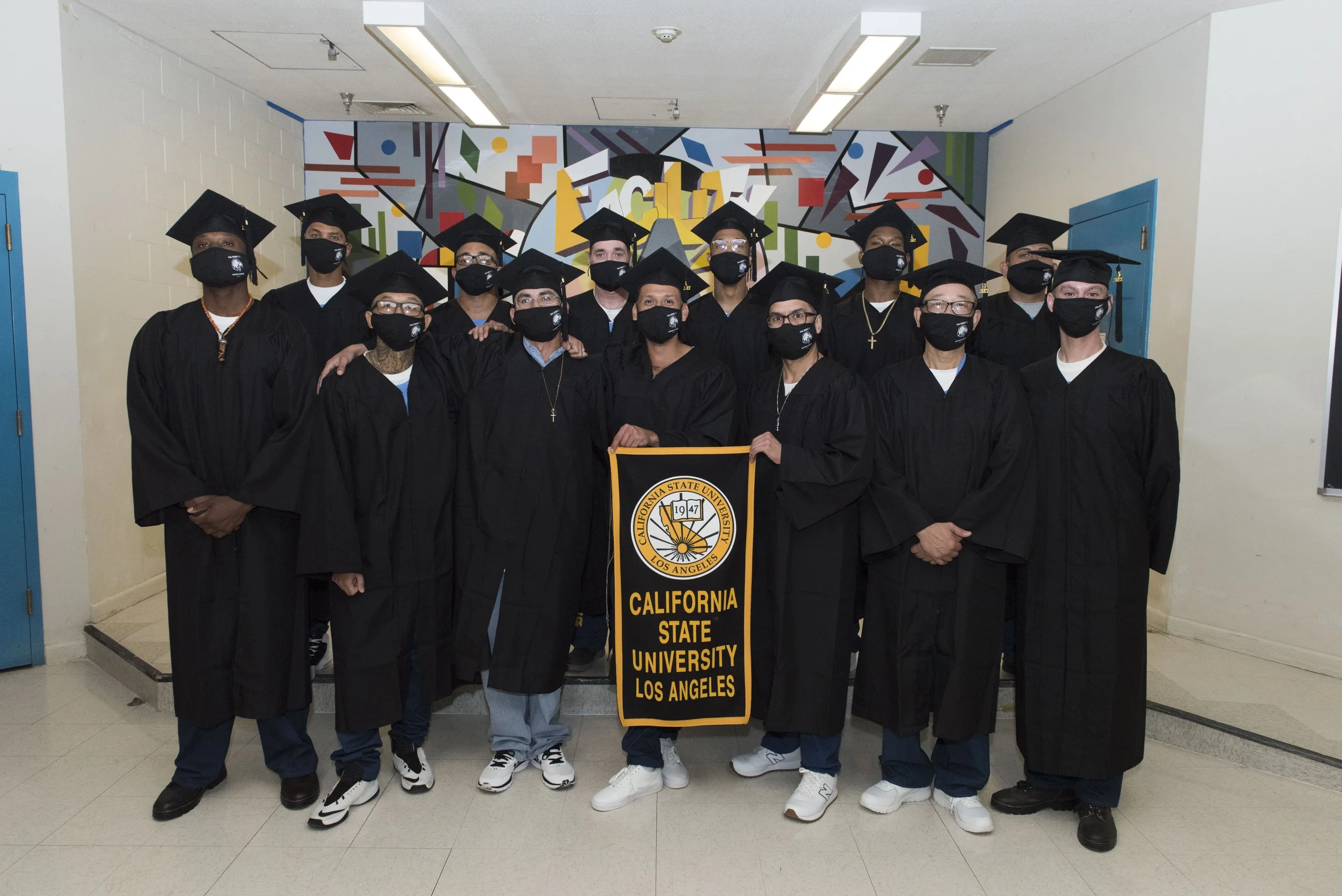Why College Education in Prison is Important
When incarcerated students enroll in college programs, something shifts. They begin to think critically, write with purpose, reconnect with their families, and see themselves differently. They become mentors on the yard, role models to their children, and contributors to their communities—even before coming home.
In the 1970s and '80s, hundreds of colleges offered degree programs in U.S. prisons. But after Pell Grants were stripped from incarcerated students in 1994, nearly all of those programs disappeared. For two decades, higher education in prison became nearly non-existent.
That began to change in the last ten years - with renewed research, policy reform, and grassroots advocacy leading to the return of college programs inside. Today, thanks to California’s groundbreaking initiatives and strategies, students who were sentenced to life in prison without possibility of parole are rebuilding their lives and creating ripple effects that extend far beyond prison walls.
This book highlights the transformation that is possible when education is available, and people begin believing in themselves once again.

“Every class I take heals a broken part of me.”
Incarcerated Student, 2018
Real Stories. Real Transformation.
Each graduate profiled in this book began their college journey while serving a life or life without parole (LWOP) sentence. Many had long been written off by society. But through an in-person bachelor’s program, they became scholars, role models, and leaders—both inside and beyond the prison walls.
Their stories show the ripple effect in action:
A student’s graduation inspires his sister to go back to school.
A former gang member becomes a mentor to others.
A mother cries tears of joy on the day her son earns his degree from behind bars.
These graduates are living proof that change is possible—and that education is one of the most powerful tools we have for transformation.
About the Author
Meet Taffany Lim
Taffany Lim, Ed.D. has spent her career creating programs that expand access to education and opportunity and has worked extensively with incarcerated and formerly incarcerated students, faculty, and system leaders to forge ambitious prison education, campus-based reentry, and career development programs.
Through her writing and advocacy, Dr. Lim brings forward the voices of students too often silenced—offering not just a book, but a call to reimagine what justice and transformation can look like.



